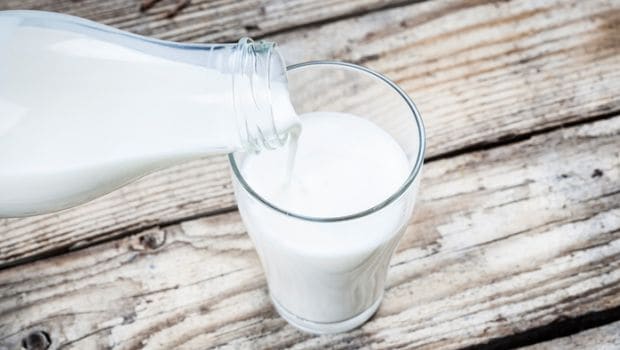Allergy versus intolerance
Allergy to any food item would translate to the body's reaction to any agent or compound present in the food item which the body perceives as an allergen; it involves the immune system. Intolerance with respect to milk or dairy stems from the body's inability to produce an enzyme called lactose, which is used in breaking down the sugar and lactose content found in milk and dairy; it involves the digestive system.

"Lipase is an enzyme that is critical for milk absorption. Over time most of us stop making this enzyme hence milk isn't tolerated well as a result of which we develop acidity or gastrointestinal discomfort, leading to lactose intolerance. Milk allergy, on the other hand, can happen due to many reasons like adulterated milk, etc. Use of antibiotics on farm animals or homogenisation may kill important enzymes in milk that aid in breaking milk protein, thereby causing allergy," noted Shilpa Arora ND, a renowned Health Practitioner, Nutritionist and certified Macrobiotic Health Coach.
"The most common cause of milk intolerance is lactase deficiency, which is mostly acquired during late childhood or adulthood. It has high racial predilection, being highest in dark-skinned populations and lowest in northern Europeans. Lactose intolerance is generally a benign condition, with symptoms limited to the gastro-intestinal tract, yet the primary acquired type lasts for a lifetime," states US National Library of Medicine, National Institutes of Health.

Photo Credit: Milk is a rich source of carbohydrates and proteins
Differing symptoms
A lactose intolerant person and a person with dairy allergy would probably experience the same symptoms such as nausea, diarrhea, abdominal cramps and pain, gas and bloating. However, the latter group may also experience skin rash, swollen lips, breathing trouble, wheezing and swollen face among other reactions.
Diagnosis
If you think you might be lactose intolerant or suffer from milk allergy, visit your nearest hospital to explore various ways through which you can get tested and diagnosed for it. A simple lactose intolerance test or a hydrogen breath tests are a couple of most commonly used methods to diagnose lactose intolerance. Milk allergy is usually established by running a host of blood tests or through a simple skin prick test.

Management
Lactose intolerant people can take a sigh of relief as the condition can be managed better than the allergy. You can have a chat with your doctor about lactase enzyme supplement and add to your diet to tolerate milk products better. Lactose-free products taste almost the same, are fortified with nutrients and safe to consume. Experts suggest switching to yogurt and fermented milk products if the system supports them well. Many other ingredients like soy also contain enough calcium to meet your dairy requirement.
People with milk allergy, on the hand, need to thoroughly check food labels and shun all-things-dairy, or anything that can remotely include traces of dairy.
"In case of lactose intolerance, switching to curd is the best bet as it boosts gut bacteria and facilitates better absorption of calcium," concluded Shilpa.
Always consult a certified medical expert before jumping to conclusions or making any dietary swaps.








